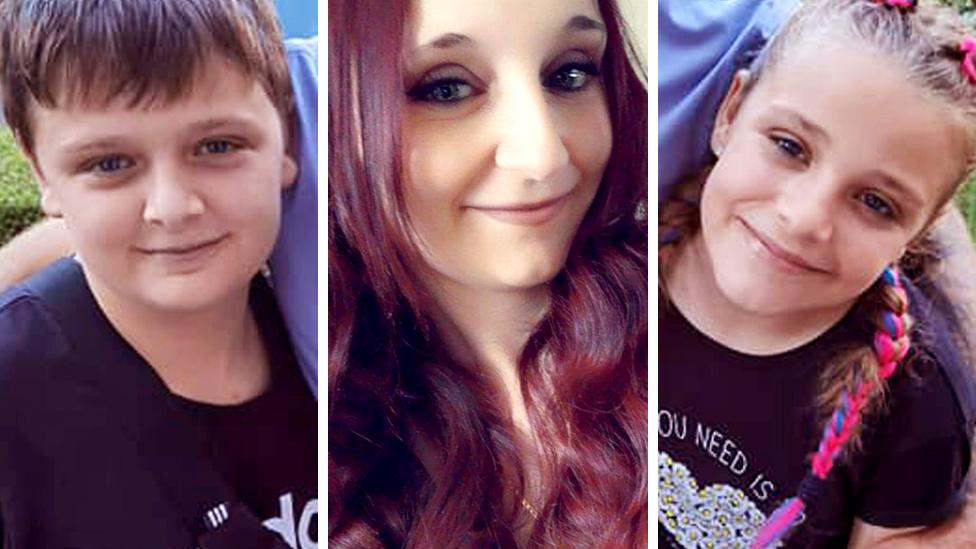Killamarsh murders: Probation failings over killer Damien Bendall
- Published
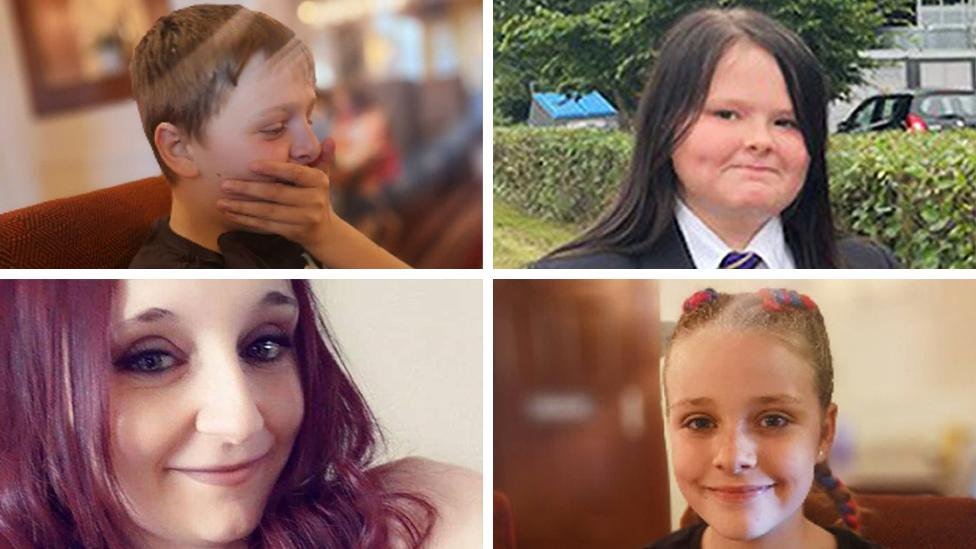
Terri Harris (bottom left) and her children John Bennett (top left) and Lacey Bennett (bottom right) were killed along with Lacey's friend Connie Gent (top right)
A review into how a quadruple murderer was dealt with by probation officers has found failings "at every stage".
The failings meant Damien Bendall was deemed suitable to live with his pregnant partner Terri Harris and her two children, who he then killed together with another child.
He could, instead, have been sent to prison when he was sentenced for arson just months before the murders.
Relatives of the victims were said to be "shocked" by the failings.
HM Chief Inspector of Probation Justin Russell said he had spoken to them personally.
"I think shocked and upset would be the summary," he said, describing how they reacted to the findings, external of an independent Serious Further Offence (SFO) review.
"I've met with the parents of Terri, her ex-partner, and also the parents of Connie Gent. I think all of them were shocked by what we had found."
Killamarsh murders: Footage shows arrest of man who murdered four
Bendall murdered Ms Harris, who was pregnant with his child, at her home in Killamarsh in Derbyshire in September 2021.
He also killed her 13-year-old son John Bennett, 11-year-old daughter Lacey Bennett, and Lacey's 11-year-old friend Connie Gent. He used a claw hammer to murder his victims, and he also raped Lacey.
The 32-year-old was jailed for the murders and rape in December, with the judge giving him a whole-life order.
Mr Russell described the case as "deeply concerning".
"The Probation Service's assessment and management of Bendall at every stage, from initial court report to his supervision in the community, was of an unacceptable standard and fell far below what was required," he said.
'Unacceptable failings'
Bendall had previous convictions for violent offences, a former partner had made allegations of domestic abuse against him, and Wiltshire Police's child sexual exploitation unit had made inquiries about him with the Probation Service.
"Probation practitioners should take account of this sort of intelligence when assessing potential risks of serious harm, but this does not appear to have happened in this case," said Mr Russell.
In a statement issued by the Ministry of Justice, Prisons and Probation Minister Damian Hinds said the Chief Probation Officer has apologised to the victims' families for the "unacceptable failings in this case", and disciplinary action has been taken against two members of staff.
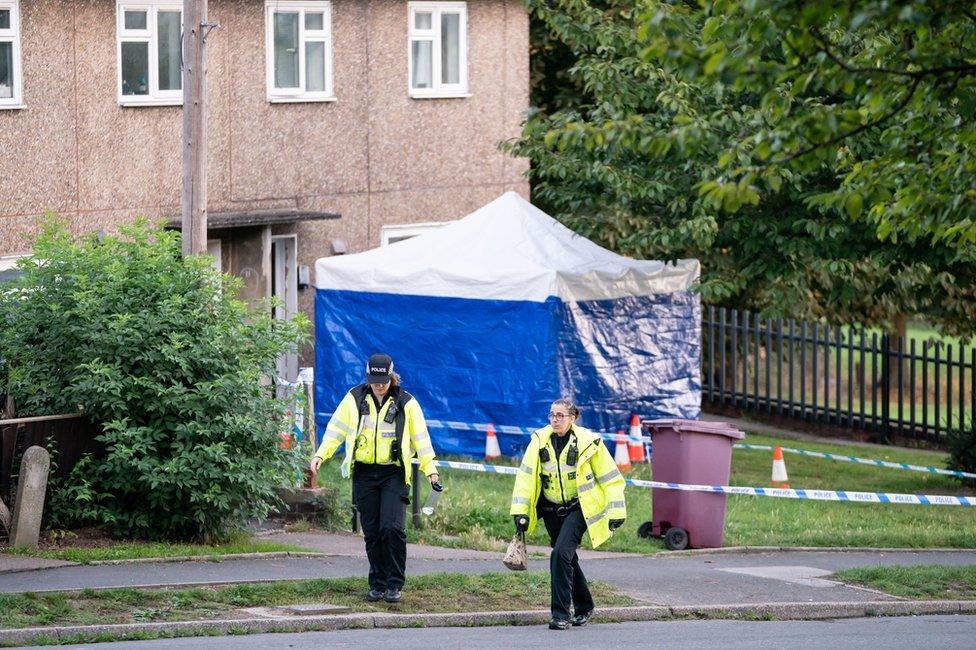
Police found Terri Harris and the three children dead at the house in Chandos Crescent
Justice Secretary Dominic Raab had previously asked Mr Russell to conduct an independent review into the case, which has now been published following the end of criminal proceedings.
According to the report, the failings began in June 2021, when Bendall was assessed by a probation officer prior to being sentenced for arson at Swindon Crown Court.
The probation officer wrote a pre-sentence report to help the judge decide the most suitable sentence. This officer was "relatively inexperienced" and the quality of the report was "very poor", according to the review.
For example, the significant level of violence used by Bendall during his previous offending was "not sufficiently examined".
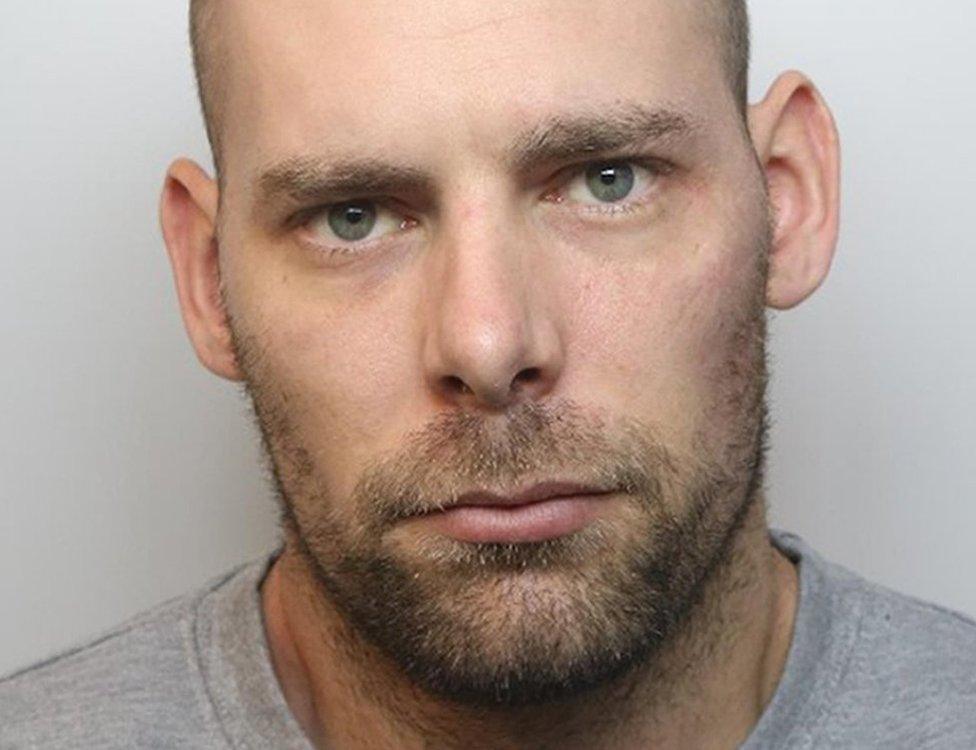
Damien Bendall admitted four murders and the rape of 11-year-old Lacey
His previous convictions comprised a robbery in 2010, which left the victim unconscious, using a knife during an attempted robbery in 2015, and attacking three prison officers in 2016, which left one needing surgery and months of physical rehabilitation.
The probation officer had also not read about police evidence regarding Bendall posing "a sexual risk of harm to girls". The report does not go into detail about this evidence, but Mr Russell told journalists that Wiltshire Police "had concerns he was associating with a vulnerable 16-year-old girl and wanted to give him a warning to keep away from this girl".
Mr Russell said: "The court report author assessed Bendall as posing a medium risk of serious harm to the public and posing a low risk of serious harm to partners and children. We do not agree with this risk assessment; they underestimated the risks Bendall posed and this had serious consequences."
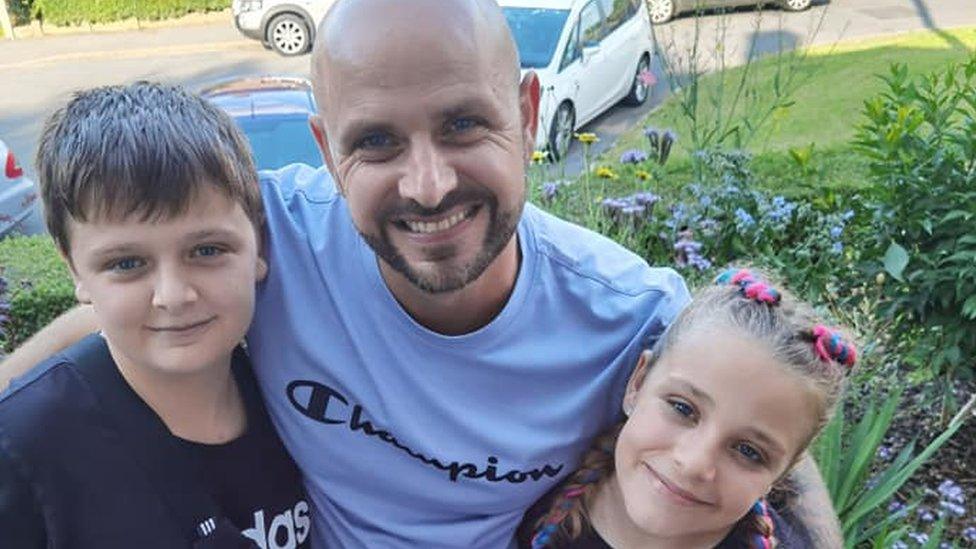
Bendall was curfewed to live with John and Lacey Bennett, pictured here with their father Jason Bennett
The pre-sentence report also stated Bendall was "suitable for a curfew requirement", but the probation officer had not contacted Ms Harris to check she consented to her home being used as his curfew address.
"They came to this wholly inappropriate conclusion without speaking to Ms Harris, visiting the property, conducting domestic abuse enquiries, or taking into account past domestic abuse claims," Mr Russell said.
The judge, Jason Taylor QC, then gave Bendall a 17-month custodial sentence but suspended it for two years, and gave him a five-month curfew so that he was tagged and could not leave Ms Harris's home at certain times.
The judge told Bendall: "I do not think for a second that you are going to come back to court. I really hope now you have turned [over] a new leaf and I hope you can carry on with the new chapter in your life."
The report into the probation service's handling of Bendall said: "Had DB's [Damien Bendall's] risk of serious harm to the public and children been correctly assessed as high, and had his risk of serious harm to partners been correctly assessed as medium, the court may not have curfewed him to an address with Ms Harris and her children."
After Bendall was sentenced, he was managed by a probation officer based in the East Midlands, but this officer was also inexperienced, having only worked in the criminal justice system for six months.
The review found Bendall would have been allocated to a more experienced officer if his risk of serious harm had been correctly assessed.
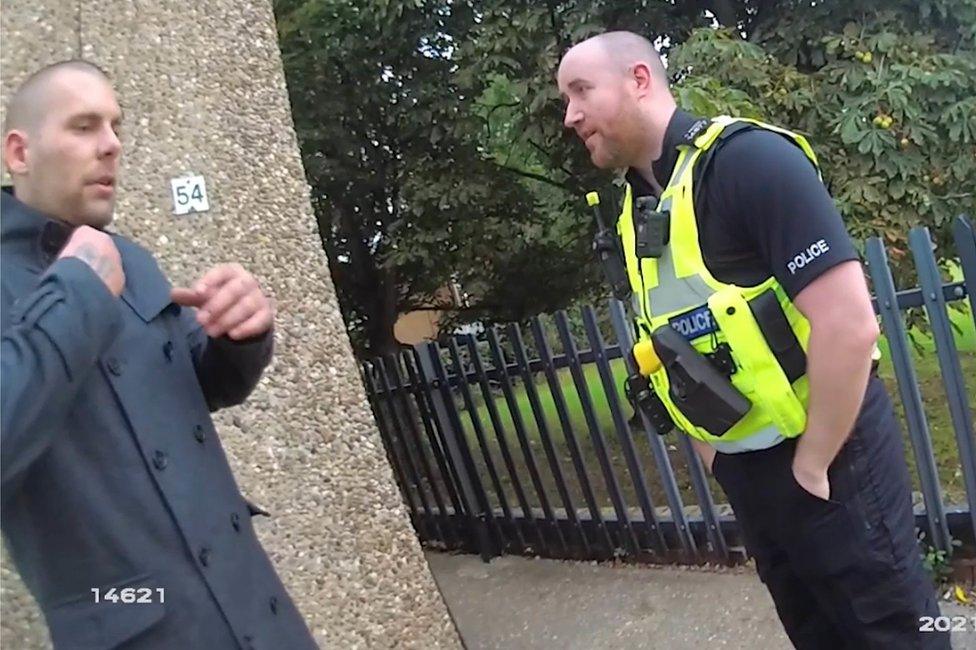
Bendall admitted killing his partner and the three children when police arrived
The review found there were then subsequent failures by supervising managers to amend his "medium risk of serious harm" to "high risk of serious harm", and to take the case back to court to have the curfew requirement removed.
Mr Russell made 17 recommendations for improvement to the Ministry of Justice, HM Prison and Probation Service and His Majesty's Courts and Tribunals Service as a result of the review.
"They have accepted all these recommendations and responded with an action plan for implementing them," he said.
"While this is welcome, over the past year in our local and national probation inspections we have continued to raise deep concerns about the quality of probation practice we find more generally in relation to the assessment and management of risk of harm.
"This is a subject I have raised repeated concerns about since becoming Chief Inspector. It is vital that this time lessons are learnt from this awful case."
In a statement, Prisons and Probation Minister Damian Hinds said: "These were appalling crimes. The Chief Probation Officer has apologised to the victims' families for the unacceptable failings in this case and disciplinary action has been taken against two members of staff.
"The extra funding of £155 million a year we have put into the Probation Service is being used to recruit thousands more frontline staff and to ensure domestic abuse and child safeguarding checks are always carried out before any offender is given a curfew.
"The Probation Service has also improved information sharing with police and councils, so no family is put at such significant risk again."

Analysis
By Tom Symonds, home affairs correspondent
For the probation inspector, Justin Russell, this is the worst report he's seen in three years at his post. He is clear that this was not just a one-off mistake by probation staff.
In about two-thirds of the 850 cases the inspectorate has examined, insufficient checks were done on criminals when assessing the risks they pose to the public.
Mr Russell said in this respect, the probation service was "not fit for purpose".
It was all supposed to have been so much better.
In 2013 the then Justice Secretary Chris Grayling promised to give "front-line professionals the flexibility and resources to innovate and do what works".
His plan, branded "Transforming Rehabilitation", involved splitting probation into a national publicly-run service for the most serious criminals and private companies given commercial-style financial incentives to reduce reoffending.
It was abandoned 18 months ago with the companies involved struggling to fund basic services.
Mr Russell said probation had been transformed. But into a service struggling with major staffing issues, with under-trained officials coping with an "unmanageable workload" just as the Covid-19 crisis hit.
The hope is that probation has turned a corner. It is now recruiting and training more staff. But the deaths of a mother and three children show what is at stake.

Follow BBC East Midlands on Facebook, external, on Twitter, external, or on Instagram, external. Send your story ideas to eastmidsnews@bbc.co.uk, external.
Related topics
- Published21 December 2022
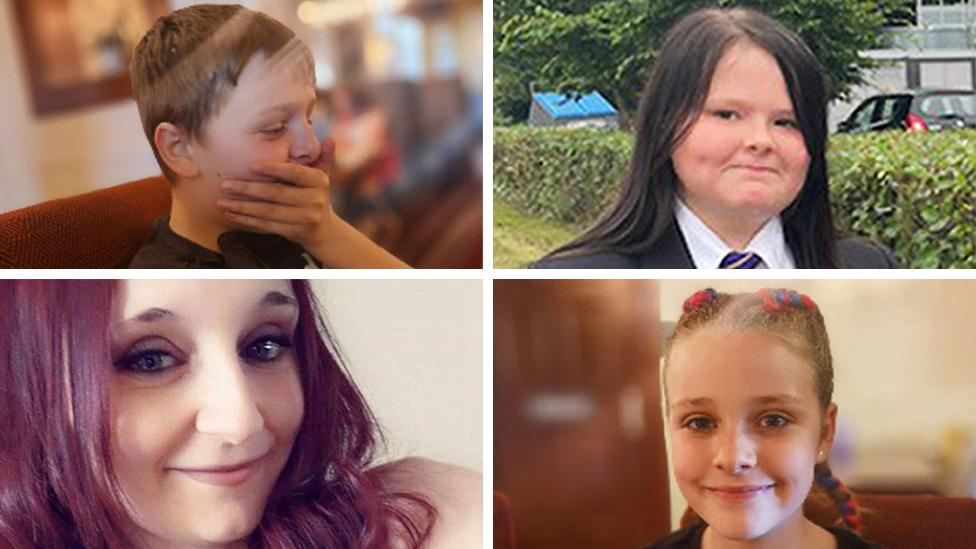
- Published4 October 2022
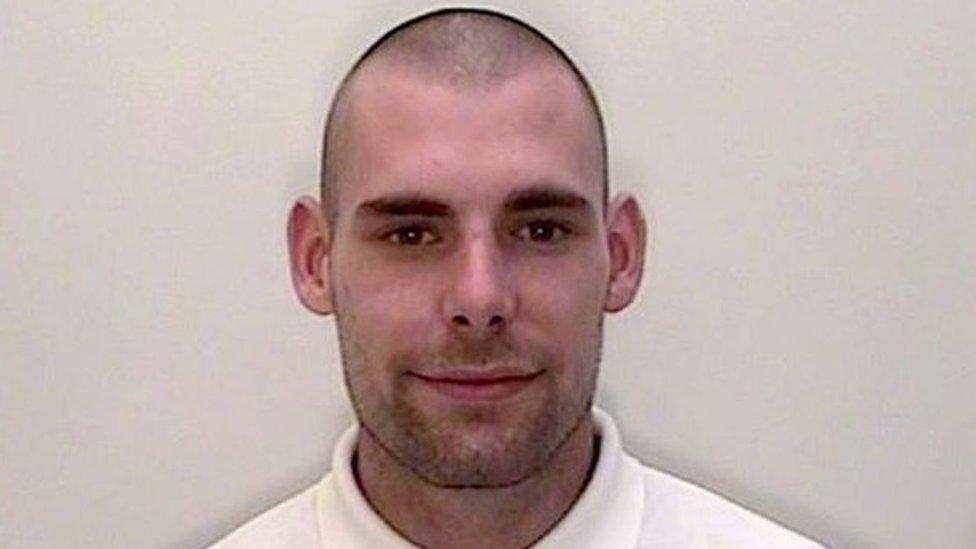
- Published27 September 2021
